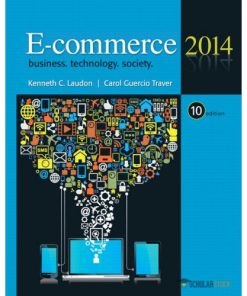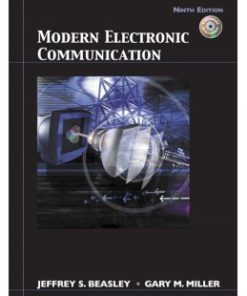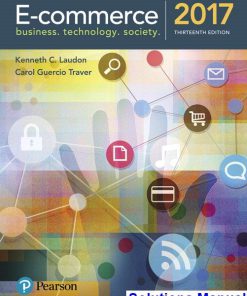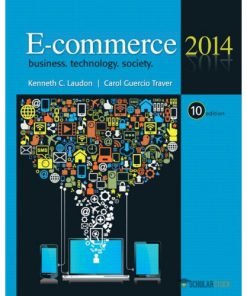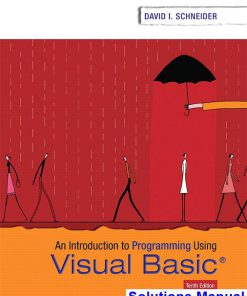Test Bank for Electronic Commerce, 10th Edition : Schneider
$35.00 Original price was: $35.00.$26.50Current price is: $26.50.
Test Bank for Electronic Commerce, 10th Edition : Schneider
This is completed downloadable of Test Bank for Electronic Commerce, 10th Edition : Schneider
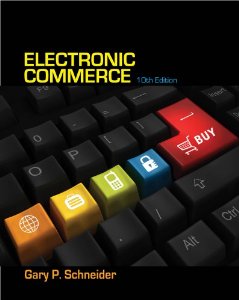
Product Details:
- ISBN-10 : 1133526829
- ISBN-13 : 978-1133526827
- Author: Gary Schneider
E-commerce continues to have a dramatic impact on virtually every aspect of business. And following the 2009 recession on electronic commerce, its role is even more critical. Packed with the most cutting-edge coverage available, ELECTRONIC COMMERCE, 10e equips students with a solid understanding of the dynamics of this fast-paced industry. It delivers comprehensive coverage of emerging online business strategies and technologies in the electronic commerce marketplace. By detailing how the landscape of online commerce is evolving, this market-leading text reflects changes in the economy and how business and society are responding to those changes. Balancing technological issues with the strategic business aspects of successful e-commerce, the new edition includes expanded coverage of e-commerce growth in China and the developing world, social media and online marketing strategies, technology-enabled outsourcing, and the latest development in online payment processing systems.
Table of Content:
Chapter 1
Following are few reasons why luxury goods producers might have been hesitant to sell online:
• Fear that products would lose their exclusivity associated with these brand names.
• Producers might have thought that they don’t have the need to find a low-cost distribution channel or establish an online presence to protect their brand as luxury goods more about the exclusive distribution while the Internet is assumed for mass distribution
Eventually as the world of online shopping is growing, luxury good producers might have changed their way of thinking about online selling for the following reasons:
• Luxury goods market is also growing and consumers are becoming more and more aware of attributes like quality, craftsmanship and utility have become just as important as the brand name itself.
• High income people shop more frequently and spend more time online than medium-income persons.
• Wealthy people buy even in recession better than others income groups and continue to purchase goods both online and at physical stores.
Chapter 2
The ICANN provides a grace period of five days to the registrants of domain in the beginning of the registration process. This grace period is provided to check the accidental registrations or any errors in the names registered. However, the registrants started misusing this grace period for other purposes.
Domain tasting is the practice of registering a domain name and testing whether it has sufficient traffic to provide income greater than the annual registration fee. If it seems that the name would provide sufficient profit then to keep it, otherwise use the “add grace period” to withdraw the domain without paying any cost.
ICANN has taken certain measures to stop domain tasting. A fee of $0.20 is charged to those who register numerous domains and they have to return the percentage of domains each month. It can easily affect those people who work with large quantities of domains.
Moreover, thousands of domain names get deleted under this measure to prevent domain tasting.
These majors to stop domain tasting started in 2008 when domain tasting had suddenly increased and has become a serious problem. The benefits of the measures are now clearly visible. The number of domain tasting has come down from 15 million domains a month to 2 million per month. Also, there has been an increase in actual purchase of domains since then.
People Also Search:
electronic commerce
electronic commerce 10th edition schneider
electronic commerce 10th edition schneider download scribd
electronic commerce 10th edition schneider test bank download pdf
You may also like…
Solution Manual
Solution Manual
Solution Manual
Introduction to Programming Using Visual Basic 10th Edition Schneider Solutions Manual





